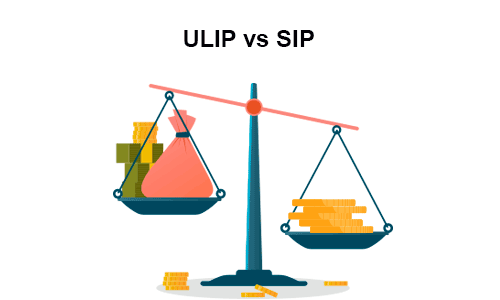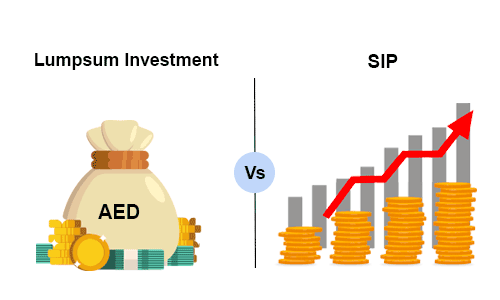Everything you need to know about Bluechip Fund
Table of Content
Investing in the stock market can be tricky, especially for those new to the field. While many options are available, the Bluechip fund is among the most popular. A Bluechip fund is an investment focused on established, successful companies with a proven track record of delivering steady returns. This blog post will explore what a Bluechip fund is, the benefits of investing in one, and how to do so. Read on to learn everything you need to know about Bluechip funds!
What are Bluechip Funds?
A Bluechip fund is a type of mutual fund that invests in the stocks of large and well-established companies, also known as Bluechip stocks. These companies are typically leaders in their respective industries and have strong financials. Investing in a Bluechip fund is to generate consistent returns over the long term. Bluechip funds are generally more stable and less risky than other funds. It makes them a popular choice among investors looking to protect their capital while still taking on some risk.
Bluechip funds offer some tax benefits, as they are usually tax-efficient investments. Additionally, these funds provide greater diversification than buying individual stocks, allowing investors to invest in many companies simultaneously. It reduces the risk of investing in a single stock and can help protect investors from market volatility.
Features of Bluechip Funds
Bluechip funds are a great investment option for low-risk and steady growth. They offer a variety of features that make them attractive to investors, including:
- Diversification: Bluechip funds invest in a wide range of stocks from different sectors so that you can spread your risk across the market.
- Low Risk: As Bluechip companies have solid financials and stable business models, the risk of investing in them is much lower than other types of investments.
- Long-term Growth Potential: Bluechip funds are designed for long-term investing, as the companies they invest in tend to grow slowly but steadily over time.
- Professional Management: A professional fund manager will manage the portfolio and adjust it according to market conditions and risk levels.
- Tax Benefits: Some Bluechip funds offer tax benefits to investors, so it is worth researching to find out which ones offer the best returns.
- Liquidity: Bluechip funds are highly liquid, meaning you can sell your shares quickly if needed.
What are the benefits of investing in a Bluechip Fund?
Investing in a Bluechip Fund can be a great way to diversify your portfolio, gain exposure to a range of high-quality stocks, and increase your potential returns.
Let's take a look at some of the benefits of investing in a Bluechip Fund:
- Lower Risk: By investing in a Bluechip Fund, you are investing in a group of large companies that are more stable and better-positioned than other stocks. It lowers your overall risk as compared to investing in individual stocks.
- Diversification: By investing in a Bluechip Fund, you can gain exposure to various quality stocks from different sectors and industries. The risk of putting all your eggs into one basket is reduced and gives you more options for diversifying your portfolio.
- High Returns: A Bluechip Fund can offer higher returns than many other investments due to its focus on established companies with robust fundamentals. As the companies in the fund grow and perform well, so will your investment returns.
- Professional Management: A Bluechip Fund is managed by a team of experienced professionals who specialise in selecting quality stocks and managing the overall fund portfolio. Your money is being managed by experts and is much less likely to suffer losses due to bad investment decisions.
- Low Fees: Bluechip Funds tend to have lower fees than other types of investments, making them a cost-effective option for long-term investors.
What are the risks associated with Bluechip funds?
While Bluechip funds offer investors the potential to earn significant returns over time, they also involve several risks that need consideration before investing.
Below, we will look at some significant risks associated with Bluechip funds:
- Volatility Risk: Bluechip funds can be very volatile due to their exposure to market movements and stock prices. Volatility can make it difficult to predict how much investment may return in the short term, and economic or political events amplify this.
- Interest Rate Risk: When investing in Bluechip funds, investors are exposed to interest rate risk, which can be challenging to predict. Changes in interest rates can have a direct impact on returns from a fund, as well as its dividend yield.
- Inflation Risk: Bluechip funds may also be exposed to inflation risk. Inflation can diminish the investor's purchasing power. If inflation rises faster than the returns from a fund, the investor's money can lose its value over time.
- Concentration Risk: Many Bluechip funds invest in a limited number of stocks from a particular sector, such as tech or banking. It means that investors could be exposed to higher levels of risk if there are fluctuations in that sector.
- Political Risk: Political events can majorly impact Bluechip funds, leading to increased volatility or unexpected changes in laws and regulations that could affect returns. Investors should consider the political climate of any country before investing in Bluechip funds in that country.
How does a Bluechip Fund work?
While investing in a Bluechip fund, you buy a portfolio of stocks from some of the world's largest companies. These companies typically have large market capitalizations and represent some of the most widely followed businesses. Examples of Bluechip stocks include Apple, Microsoft, and Amazon.
A Bluechip fund allows investors to spread their risk across multiple companies instead of investing in just one. It reduces the risk associated with investing in individual stocks since gains from another will offset any losses incurred by one stock. Bluechip funds are also typically well-diversified since they hold stocks from different sectors and industries.
Bluechip funds tend to have lower fees than other types of funds since they have fewer active trades and are managed passively. Thus, they attract investors who want to avoid paying higher costs for actively managed funds.
Examples of Bluechip Funds
The Indian securities markets regulatory board limits investments in large-cap mutual funds to up to 80% of their total fund holdings. It also mandates that these companies' stocks mostly comply with the Bluechip definition, which means they have excellent financial credentials. A few examples are:
- Canara: Robeco Bluechip Equity Fund.
- ICICI: Prudential Bluechip Fund.
- HDFC Top: 100 Fund.
- Nippon: India Large Cap Fund.
- Mirae: Asset Large Cap Fund.
- Axis: Bluechip Fund.
Conclusion
To conclude, Bluechip funds are a great way to diversify your portfolio and invest in some of the most reliable stocks on the market. With careful research and consideration, these funds can be an excellent long-term investment. Before investing, understand the investment strategy and the underlying stocks that make up the fund. Consider your financial goals and risk tolerance to determine if this fund suits you. With the correct information and preparation, Bluechip funds can be a great way to achieve your financial goals.
More From Investment
- Recents Articles
- Popular Articles





.jpg)












.jpg)
.jpg)
















